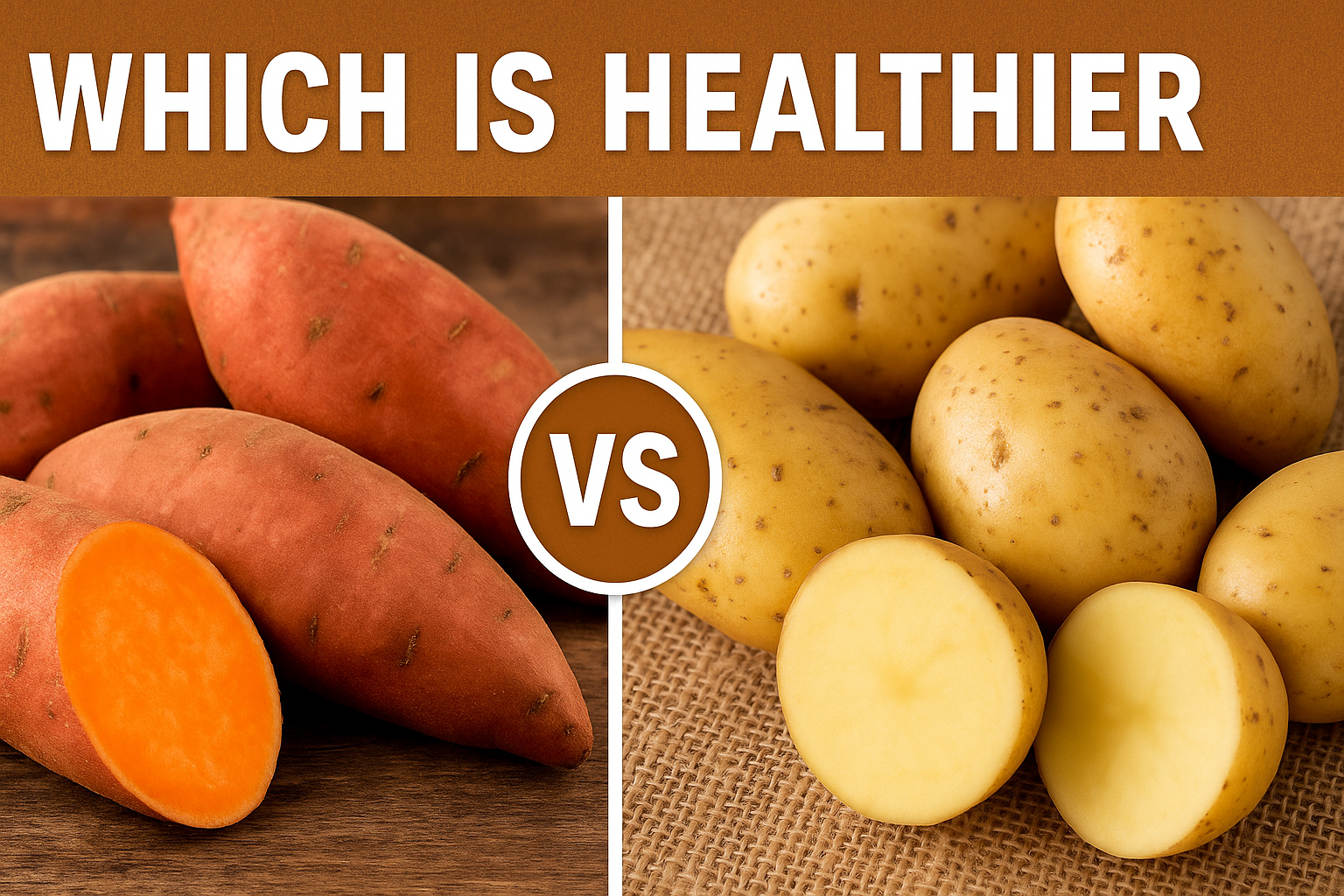When it comes to making nutritious food choices, understanding the detailed differences between sweet potato nutrition and that of regular potatoes is essential. Both types of potatoes are staples across many diets worldwide, but their nutritional profiles, health benefits, and best uses vary significantly. As an authority in nutrition science, I aim to provide a professional, well-researched comparison to help you make informed dietary decisions.
Sweet Potato Nutrition: A Deeper Dive
Sweet potatoes (Ipomoea batatas) are often lauded as a "superfood" — and for good reason. They are rich in essential vitamins, minerals, and antioxidants that support various aspects of human health.
Nutritional highlights of sweet potatoes (per 100g, baked):
- Calories: 90
- Carbohydrates: 20.7g
- Fiber: 3.3g
- Sugar: 6.5g
- Protein: 2.0g
- Fat: 0.15g
- Vitamin A: 384% of the Daily Value (DV)
- Vitamin C: 33% of the DV
- Potassium: 475mg
A standout feature of sweet potatoes is their high beta-carotene content, which converts to vitamin A in the body and supports immune function, vision, and skin health. According to a study by the National Institutes of Health, adequate vitamin A intake is crucial for reducing the risk of chronic diseases.
Regular Potato Nutrition: Unpacking the Facts
Regular potatoes (Solanum tuberosum) are often unjustly criticized, yet they are also a highly nutritious food when prepared properly.
Nutritional highlights of regular potatoes (per 100g, baked, with skin):
- Calories: 93
- Carbohydrates: 21.2g
- Fiber: 2.2g
- Sugar: 1.2g
- Protein: 2.5g
- Fat: 0.1g
- Vitamin C: 24% of the DV
- Potassium: 535mg
- Vitamin B6: 15% of the DV
Potatoes provide an excellent source of vitamin C, potassium, and vitamin B6, making them valuable for heart health, energy metabolism, and nerve function. Their fiber content, especially when eaten with the skin, supports digestive health.
Sweet Potatoes vs. Regular Potatoes: Nutritional Comparison Table
| Nutrient | Sweet Potato (100g) | Regular Potato (100g) |
|---|---|---|
| Calories | 90 | 93 |
| Carbohydrates | 20.7g | 21.2g |
| Fiber | 3.3g | 2.2g |
| Sugar | 6.5g | 1.2g |
| Vitamin A | 384% DV | 0% DV |
| Vitamin C | 33% DV | 24% DV |
| Potassium | 475mg | 535mg |
| Protein | 2.0g | 2.5g |
Key Health Benefits Comparison
1. Blood Sugar Management
- Sweet potatoes have a slightly lower glycemic index compared to regular potatoes, meaning they cause a slower, more gradual increase in blood sugar levels.
- Regular potatoes, particularly when processed (fried, mashed with butter, etc.), tend to spike blood sugar more sharply.
Pro Tip: Cooling cooked potatoes and eating them cold (as in potato salad) increases their resistant starch content, improving blood sugar control.
2. Antioxidant Power
- Sweet potatoes, particularly the orange and purple varieties, boast high levels of antioxidants like beta-carotene and anthocyanins.
- Regular potatoes contain some antioxidants but generally less than their sweet counterparts.
3. Weight Management
Both types of potatoes can fit into a healthy weight-loss plan when portioned properly. However, sweet potatoes might offer an edge due to their higher fiber content, promoting satiety.
4. Athletic Performance
For individuals seeking to optimize performance — including those training at gyms in Fort Wayne Indiana — sweet potatoes provide a more nutrient-dense carbohydrate source ideal for muscle recovery and energy replenishment.
Real-World Application: Choosing the Right Potato
Choosing between sweet potatoes and regular potatoes depends on your personal health goals:
- For better blood sugar control: Sweet potatoes are preferable.
- For potassium intake and muscle function: Regular potatoes excel slightly.
- For boosting immunity and vision: Sweet potatoes dominate due to their vitamin A content.
Consider integrating both varieties into your diet for a balanced approach. Roasting, baking, and boiling are healthier preparation methods compared to frying.
Common Myths Debunked
- "Sweet potatoes are always healthier": Not necessarily. Each type offers unique benefits depending on dietary needs.
- "White potatoes are fattening": Incorrect. Weight gain stems from overall caloric surplus, not specific foods.
- "Only orange sweet potatoes are healthy": Purple varieties are packed with anthocyanins, a powerful antioxidant.
Sweet Potato Nutrition and Smart Choices
Ultimately, when it comes to sweet potato nutrition versus regular potato nutrition, there is no "one size fits all" answer. Both foods offer tremendous health benefits when included in a balanced diet. For those prioritizing blood sugar control, antioxidant intake, or vibrant health, sweet potatoes may be the superior choice. However, regular potatoes provide robust amounts of potassium and vitamin C, contributing meaningfully to an active, healthy lifestyle.
No matter which potato you favor, choosing minimally processed preparations and mindful portions is key to unlocking their full nutritional potential.



No Comments.